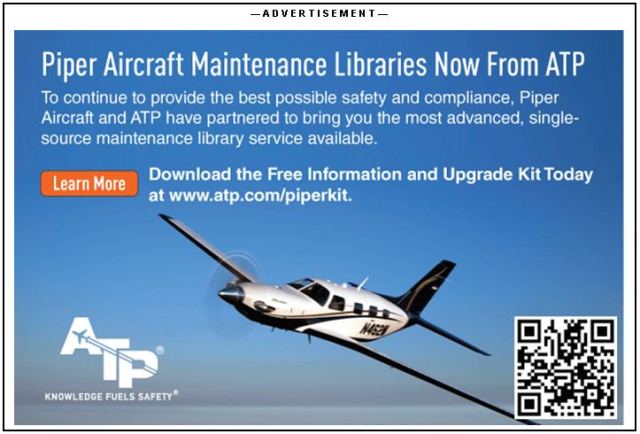2016 – Edition 9 – Oct. 14
Table of Contents
Note: The order of material varies in hotline emails, but is always presented the same on this landing page. Readers scrolling through content on or printing this page will find it organized consistent with the table of contents.
2016 Strategic Leadership Conference – Montreal
ARSA Works
Legal Briefs
ARSA on the Hill
Regulatory Outlook
Training
Membership
AVMRO News Portal
Upcoming Events
2016 Strategic Leadership Conference – Montreal
2016 SLC – What Happened in Montreal
By ARSA Events Team
ARSA’s 2016 Strategic Leadership Conference arrived in Montreal on Oct. 5. Whether you were an on-site participant (thank you) or a distant observer, this is your portal to the maintenance community’s annual executive-level event:
Special Updates
Oct. 7 @ 11:00 a.m.
Coopesa’s Calvo Brings International Perspective to ARSA Presidency
ARSA’s board of directors has announced the election of its new president: Warner Calvo, quality and safety director of Coopesa, R.L. in Alajuela, Costa Rica has accepted the position. The selection was made during the board’s annual meeting, which followed the 2016 Strategic Leadership Conference in Montreal, Canada.
Oct. 6 @ 10:45 a.m.
At Its International Conference, ARSA Announces New Global Engagement
On Oct. 6, during its annual Strategic Leadership Conference (SLC), ARSA announced it would be nominating a representative to the Engineering and Maintenance Stakeholder Technical Body (E&M STeB) overseen by EASA’s Management Board. Click here to read more.
The Live Feed
(updated during event, review the posts to see what was happening):
Gold Sponsors |
||
|
Gold |
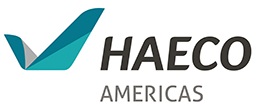 |
|
 |
Gold |
Silver Sponsors
|
||||
 |
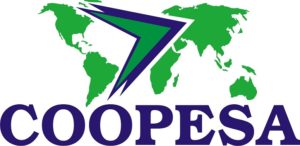 |
 |
||
 |
 |
Supporters |
||||
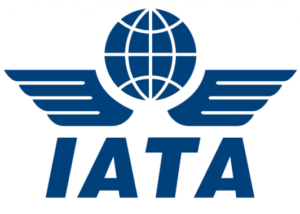 |
s |
Click any sponsor logo to visit the organization’s website.
Coopesa’s Calvo Brings International Perspective to ARSA Presidency
By ARSA Communications Team
ARSA’s board of directors has announced the election of its new president: Warner Calvo, quality and safety director of Coopesa, R.L. in Alajuela, Costa Rica. The selection was made during the board’s annual meeting, which followed the 2016 Strategic Leadership Conference in Montreal, Canada.
Calvo has more than 30 years of aviation experience and holds both Costa Rican and American aircraft maintenance technician certificates. He supports Coopesa’s compliance with the regulatory requirements of more than 18 civil aviation authorities. Calvo most-recently served ARSA as vice president before ascending to the top leadership position. ARSA’s 2015 president, Jet Center MFR General Manager Gary Hudnall, will remain on the board as a valuable resource to the association’s leadership.
ARSA’s board of directors represents a broad range of international maintenance interests. Board members direct the association’s work to best serve the aviation community. As an international representative, Calvo’s leadership will be instrumental in continuing ARSA’s strategic push to expand its global membership and influence.
“Aviation is borderless,” Calvo said. “Political boundaries can’t restrain a free-flying aircraft. Unfortunately, the companies that support the flying community – maintenance providers especially – deal with boundries and barriers to international business every day. ARSA works diligently to limit the burdens placed on repair stations and I’m eager to continue furthering those efforts alongside my fellow board members.”
During the meeting, Basil Barino, executive vice president of repair divisions for NORDAM in Tulsa, Oklahoma was elected vice president and Dave Latimer, vice president of regulatory compliance for HAECO Americas, became treasurer. Calvo, Barimo and Latimer will each serve one year terms.
For more about the board of directors, click here.
For more about the SLC, click here.
At Its International Conference, ARSA Announces New Global Engagement
By ARSA RegulatoryTeam
On Oct. 6, during its annual Strategic Leadership Conference (SLC), ARSA announced it would be nominating a representative to the Engineering and Maintenance Stakeholder Technical Body (E&M STeB) overseen by EASA’s Management Board.
The STeB’s role is to provide strategic advice and guidance to the management board on a wide range of topics. Focus areas include implementation/standardization issues, risk management and rulemaking impact assessment. EASA is developing similar boards to support aviation safety oversight and gather input from stakeholders across the aviation community. Each board, composed of industry groups and other interested parties, operates in support of EASA’s newly-established Stakeholder Advisory Board (SAB).
Through membership on the E&M STeB, ARSA will further formalize its growing role in transatlantic regulatory compliance. Since September 2015, the association has led an industry-wide effort to address issues stemming from new parts documentation requirements in the U.S.-EU Maintenance Annex Guidance (MAG).
“ARSA is very pleased to receive this invitation and looks forward to further collaborations with EASA and other members of the E&M STeB,” said Marshall S. Filler, the association’s managing director and general counsel. “ARSA will continue its advocacy role on behalf of the global maintenance industry and appreciates the opportunity to participate in this important advisory body.”
The SLC was the perfect platform for ARSA to highlight its expanding global impact. The annual roundtable-style meeting provides senior maintenance executives from around the world an open forum with representatives from the International Air Transport Association (IATA), the International Civil Aviation Organization (ICAO), the FAA, EASA and other aviation community stakeholders.
Having received a formal invitation to join the STeB, ARSA’s focus turns to selecting its nominees, determining logistical needs and rallying support for its participation.
ARSA Works
To see all the ways ARSA works as the voice of the aviation maintenance industry, visit the ARSA Works page.
FAA Accepts ARSA Form E100, Confirming Method of MAG Compliance
By ARSA Regulatory Team
On Sept. 28, the FAA confirmed ARSA’s Form E100 as an acceptable method of compliance with U.S. and EASA requirements for inspecting certain new parts. The letter was signed by the Manager of the FAA’s Aircraft Maintenance Division (AFS-300) and delivered to ARSA’s Managing Director and General Counsel Marshall S. Filler. It also confirmed that Form E100 was consistent with agency guidance (FAA Notice 8900.380) pertaining to the documentation required under the bilateral aviation safety agreement between the United States and European Union, as reflected in change 6 to the U.S.-EU Maintenance Annex Guidance (MAG).
ARSA Members: Click here to go to the publications page and order Form E100.
The association had released the form (which is available free of charge to members) on Sept. 21 to provide repair stations a method of complying with new demands from the European Aviation Safety Agency (EASA) in time to meet an Oct. 1 deadline. On that date, the European regulator will begin requiring that specific documentation accompany new parts to be installed in articles subject to the MAG; that is, those articles approved for return to service by a dual release.
ARSA developed Form E100 for its members to record an inspection of a new article received without the documentation required by the MAG. The FAA’s confirmation of the form’s acceptability guarantees that the U.S. aviation maintenance industry will have an another method of compliance at its disposal.
ARSA has produced an on-demand online training session on MAG compliance,
which focuses on providing instruction for use of the form.
“This is another significant step as U.S. industry transitions to the new EASA requirements,” Filler said. “It is a hard-earned success. For more than a year, ARSA, its industry allies and member companies have been working diligently to overcome the biggest regulatory obstacles. We used a systems approach by involving the certification and flight standards organziations from both [U.S. and European] agencies. EASA and the FAA should be commended for their willingness to consider alternate approaches and for giving U.S. industry the time needed to adjust their internal processes. Notice 8900.380 and the resulting ARSA New Part Inspection Form are critical for maintenance providers because, in spite of the FAA’s efforts to facilitate production approval holders’ issuance of Form 8130-3, it is still not required under the FAA system. And while we strongly encourage ARSA members to include specific language requesting this form in their purchase orders to U.S. PAHs, they will have an alternate path to compliance if the required documentation is not provided.”
The association has been leading an industry wide effort to “smooth” implementation of this new requirement since September 2015. To review ARSA’s work, scroll through the content below.
Member companies interested in utilizing the form should visit arsa.org/publications.
Special Training Session – Complying with MAG 6
By ARSA Regulatory Team
For more than a year, ARSA has been leading an industry wide effort to “smooth” implementation of changes 5 (and now 6) to the U.S.-EU Maintenance Annex Guidance. Take advantage of that experience and learn to utilize the association’s Form E100 as a method of compliance with new parts documentation requirements.
To see all of ARSA’s work on the MAG, visit arsa.org/mag.
Complying with MAG 6 – Completing ARSA Form E100
Description: This session provides an overview of the documentation requirements that United States repair stations with European Aviation Safety Agency part 145 approvals must follow when performing maintenance on EU-registered aircraft and components to be installed thereon—that is, when a “dual release” is issued for the work performed.
Instructors: Marshall S. Filler & Sarah MacLeod
Click here to register and get unlimited access for 90 days.
NOTE: Registration for this session is open to any interested participant. However, ARSA Form E100 is available only to association member organizations.
Registration for an ARSA-provided, on-demand training session includes:
- Unlimited access for 90 days to the recording.
- A copy of the presentation and all reference material with links to relevant resources and citations.
- Upon completion of the class as well as any test material, a completion certificate.
The association’s training program is provided through Obadal, Filler, MacLeod & Klein, P.L.C., the firm that manages ARSA. To go directly to OFM&K’s online training portal, visit PotomacLaw.inreachce.com. To learn more about the association’s training program and see course availability, visit arsa.org/training.
Aviation Coalition Pushes for Better Workforce Data
By ARSA Regulatory Team
On Sept. 20, an aviation coalition continued its push to address the aviation maintenance workforce crisis by helping the government to define it. ARSA joined the group, led by the Aviation Technician Education Council (ATEC), in filing comments asking the Standard Occupational Classification Policy Committee to revise its aviation maintenance personnel definitions.
The SOC system is the source of all federal occupational statistics. It determines precisely which occupations exist and is used as the basic structure for workforce analysis by government agencies. The aviation maintenance industry has been stuck in a void – trapped under incorrect classifications – for years. Within the current system, nearly all aviation maintenance professionals are classified into a single occupation titled “Aircraft Mechanics and Technicians,” with a separate category for “Avionics Technicians”.
The coalition argued that classifying workers using FAA certification is the most logical and useful method; since aviation safety rules use the same definitions to dictate precisely who is allowed to perform maintenance, preventive maintenance and alteration tasks. The comments asked that the existing two categories be replaced with three occupations: certificated mechanics, certificated repairmen and non-certificated technicians.
A change in the classification structure would mean more precise information to help recruit potential mechanics and more accurately reflect the dynamic nature of maintenance careers. In addition to improving government analyses, better classifying technicians and mechanics will impact the Department of Labor’s “industry outlook”; a factor in career counselor recommendations and future workforce development efforts.
In addition to ARSA and ATEC, the alliance included the Aerospace Maintenance Council, Airlines for America, the Cargo Airline Association, the General Aviation Manufacturers Association, Helicopter Association International, the National Air Transportation Association, a former member of the National Transportation Safety Board and the Regional Airline Association.
To read the comments, click here.
Legal Briefs
Editor’s note: This material is provided as a service to association members for educational and informational purposes only. It does not constitute legal or professional advice and is not privileged or confidential.
Beyond the Repair Station Certificate – Certificated Employees
By Sarah MacLeod, Executive Director and Kimbery R. Villiers, Regulatory Affairs Coordinator
Part 43 establishes the rules for persons that may perform maintenance, preventive maintenance, rebuilding or alteration work on civil aviation products and articles. For repair stations, § 43.3(e) provides that it may perform work in accordance with the provisions in part 145. That means part 145 will “rule” the work being performed and the qualifications of personnel planning, supervising, performing and issuing approvals for return to service on the repair station’s behalf–see § 145.151(b).
In general, § 145.151(c) requires that employees possess knowledge through training and experience to perform the assigned work. Additionally, § 141.151(d) and the repair station training program under § 145.163(b) requires the company assess the capability and ability of all employees assigned maintenance functions to ensure compliance with parts 43 and 145.
Subpart D of part 145 contains additional qualifications for specified job functions. In other words, two job functions require the individual employee to have an appropriate certificate under part 65–namely, supervisors and employees authorized to approve the repair station’s work for return to service. The individual’s certificate is not the only or even the most important requirement. A repair station cannot depend upon the issuance of an individual certificate to comply with the general requirements in §§ 141.151 or 145.163(b).
Section 145.153 requires that supervisors be appropriately certificated under part 65 for the work being overseen. That section’s language makes clear that a supervisor will be overseeing the work of persons unfamiliar with their tasks; therefore, it follows that the supervisor must be familiar with how to accomplish the work.
Employees who approve work for return to service on behalf of the repair station must also hold a mechanic or repairman certificate issued under part 65–see § 145.157. While there are no other articulated qualifications for these individuals, they should know the regulations and be thoroughly familiar with the repair station quality system.
Obviously, in order to obtain either a mechanic or repairman certificate, the individuals must meet the requirements of §§ 65.71–for mechanics–and 65.101–for repairmen.
ARSA on the Hill
Elections Have Consequences
By Daniel B. Fisher, Vice President of Legislative Affairs
Editor’s Note: This is the fourth part in a series on active political engagement. If you have not read the first three installments, navigate using the links below:
Constituents Matter: Congressional State/District Offices
How to Be an Involved Constituent: Town Hall Meetings
Show Me What You Got: Facility Visits
If you’re living in the United States, you’ve been bombarded with television and radio ads, reflected on what is and isn’t “locker room talk” and met Kenneth Bone, an unassuming citizen who asked an insightful, policy-related question to the presidential candidates during the second debate…and immediately became an overnight sensation.
I’m pleased to announce the 2016 election cycle is in the home stretch; however, no matter how much you want the campaigns to end, it’s important not only that you vote, but also that you encourage your employees and colleagues to head to the polls on election day (if not before, as absentee voting is already in full swing).
There’s a bunch a stake both on a federal, state and local level. The battle for the White House and control of both houses of Congress will determine the future of tax, trade, environmental, regulatory and aviation policy for the next decade. While the House is expected to remain Republican into 2017 (though in this political environment, anything can happen), GOP margins will likely shrink. In the Senate, Democrats have a legitimate shot at overtaking the Republicans’ 54-46 majority; GOP-held seats in North Carolina, Missouri, Florida, New Hampshire, Indiana, Wisconsin and Pennsylvania remain “toss-ups” and incumbent Sen. Mark Kirk (R-Ill.) needs to pull-off the upset of the year to keep his seat.
While federal elections get all of the attention, don’t forget state and local races. Governorships, legislatures, county councils and city halls are up for grabs across the country. The outcome of these races will oftentimes have a larger impact on your business and your day-to-day life than the national elections. Educate yourself about your local candidates and issues (including ballot measures) and vote!
Get educated, get engaged, and make your mark at the polls on Nov. 8. Remember, you can’t really complain about the results – or celebrate them – if you don’t vote.
Click here to learn more about ARSA’s efforts on – and off of – the Hill.

2016 Election Predictions – Calling All Political Pundits
By ARSA Legislative Team
With Election Day fast approaching, our televisions have become clogged with pundits preaching predictions for Nov. 8. Join the fun – camera crew and makeup not required – and see how your picks stack up against others in the repair station industry.
The association’s election year contest is back. Do you have what it takes to be ARSA’s 2016 Pundit of the Year? Put your skills to the test by visiting www.surveymonkey.com/r/ARSA2016Pundits.
For this election, ARSA’s government affairs team is focusing on the U.S. Senate, which currently has 54 Republicans, 44 Democrats and two independents (both caucus with the Democrats). After swinging back to GOP control in 2014, tumult on top of the Republican ticket has put the majority in doubt. We’ve chosen ten of the closest Senate races to test your prognostication abilities.Of course, no political prediction would be complete without a presidential selection; you’ll get started by picking who you think will be the next occupant of 1600 Pennsylvania Avenue. Remember to pick who you think is the likely winner and not necessarily the candidate for whom you plan to vote.We’re not ignoring the House of Representatives altogether: your final challenge will be to predict the total number of seats the Republicans will hold after the votes are tallied. (All 435 seats in the House are up for election.) You’ll get to answer the same question for the Senate, where 34 of the 100 seats are up.
Choose who you think will win – see if you have what it takes to be the 2016 Pundit of the Year.
Technical Education Bill Flies Through House
By ARSA Legislative Team
On Sept. 13, the U.S. House of Representatives overwhelmingly approved the Strengthening Career and Technical Education for the 21st Century Act (H.R. 5587). The bill, which would reauthorize federal investment in technical education programs, passed 405-5.
On Aug. 19, ARSA delivered a letter to the House urging strong support and swift approval of H.R. 5587, the bipartisan legislation that would reauthorize, reform and improve the Carl D. Perkins Act, which has been left untouched for a decade. The bill is a significant step to addressing the skills crisis that plagues just about every U.S. economic sector, from aviation to manufacturing to construction. Specifically, the legislation includes much needed reforms to the Perkins Act, including:
- Aligning CTE programs to the needs of the regional, state and local labor markets.
- Supporting effective and meaningful collaboration between secondary and postsecondary institutions and employers.
- Increasing student participation in work-based learning opportunities.
- Promoting the use of industry recognized credentials and other recognized post-secondary credentials.
The legislation now awaits Senate action. ARSA encourages members of the aviation maintenance community to get active in support of CTE overhaul. To weigh-in with your lawmakers in support of Perkins Act reauthorization visit: ofmk.freeenterpriseaction.com/VsvkKKI.
Stay tuned to ARSA for updates and keep up-to-date on the debate at perkinscte.com or by following @PerkinsCTE on Twitter.

Regulatory Outlook
FAA Consistency Board May Rein In Regulatory “Wild West”
By ARSA Regulatory Team
As the FAA continues to hammer out the details for how the Regulatory Consistency Communication Board (RCCB) will operate in the long run, the board is addressing regulatory inconsistencies raised by industry stakeholders. The FAA created the RCCB based on recommendations of the Consistency of Regulatory Interpretation Aviation Rulemaking Committee (CRI ARC – click here to see more on recommendation). The RCCB’s goal is to provide clarification to FAA personnel, certificate/approval holders and applicants on issues that span the jurisdiction of multiple FAA divisions.
Most recently, the RCCB issued a decision clarifying whether notes in Type Certificate Data Sheets (TCDS) are mandatory or provided for informational purposes. According to the agency, there is a common misconception that regulatory requirements are only specified in the main body of TCDSs and that the notes are intended to contain reminders or information of convenience. The RCCB clarified that TCDS notes can indeed be mandatory; however, notes are mandatory (i.e., are required to be followed) only if they are supported by a regulation. If not, the note is unenforceable.
For instance, a note in a TCDS may state that an “aircraft shall be maintained in accordance with the manufacturer’s maintenance manual.” Although the verb “shall” makes the note sound like it must be followed, the FAA explained that such statement is for informational purposes only. The agency reasoned that 14 CFR § 43.13(a) provides for the use of the current manufacturer’s maintenance manual, instructions for continued airworthiness or other methods, techniques and practices acceptable to the administrator. The above-referenced note only provides one regulatory source of information and, therefore, is not supported by the regulation and provided for informational purposes only.
This vexing issue has caused problems for maintenance providers seeking to develop independent repairs and is particularly suited for the RCCB to address because it requires collaboration from both the FAA’s Flight Standards and Aircraft Certification Services. Only time will tell, but the RCCB may actually end – or at least rein in – the wild west of regulatory interpretation.
To see decisions issued by the RCCB, click here.
FAA Finalizes Rule on Housing Requirements, Considers ARSA Comments
By ARSA Regulatory Team
On Sept. 26, the Federal Register published the FAA’s final rule on 14 CFR § 145.103’s suitable permanent housing requirements. The rule was promulgated as a result of ARSA’s December 2015 letter to the FAA’s chief counsel voicing its concern on the impractical regulatory requirement for a repair station to have a hangar to enclose the largest aircraft listed on its operations specifications even if the work is limited to airframe components.
In the rule, the FAA removed the unnecessary – and burdensome – housing requirement from § 145.103. The agency also re-introduced its ability under § 145.61(b)(13) to issue a limited rating for any purpose it deems appropriate in addition to the named categories in § 145.61(b). The rule requires that a repair station’s housing for its facilities, equipment, materials and personnel must be consistent with its ratings and limitations.
The agency’s action was initially issued as an interim final rule in July. ARSA expressed its support for the change; but suggested the agency consider removing the list of limited ratings in 145.61(b) in light of 145.61(a)’s general language empowering the agency to issue any limited rating it deems appropriate. In the final rule, the FAA noted that it may consider ARSA’s suggestion in the future.
To view the docket for the final rule, click here.
Obama Administration Issues Mandatory Sick Leave Rule
By ARSA Regulatory Team
Furthering its efforts to implement policy priorities through executive action, on Sept. 30, the Department of Labor (DOL) unveiled a final rule mandating paid sick leave for employees of federal government contractors.
The mandate, which follows an executive order on the same topic issued by President Obama in September 2015, will require covered federal government workers to accrue at least seven days (56 hours) annually. The rule applies only to federal contracts on or after Jan. 1, 2017.
The business community has expressed concern that the requirement will lead companies that already provide benefits to offer less-generous policies and that the new federal regulation adds another layer to a complex maze of state and local laws on the topic.
For further information about the rule, including a DOL issued fact sheet and FAQ document, visit: www.dol.gov/whd/govcontracts/eo13706.
Final Documents/Your Two Cents
This list includes Federal Register publications, such as final rules, Advisory Circulars and policy statements, as well as proposed rules and policies of interest to ARSA members.
Training
The association’s training program is provided through Obadal, Filler, MacLeod & Klein, P.L.C., the firm that manages ARSA. To go directly to OFM&K’s online training portal, visit potomaclaw.inreachce.com. To learn more about the association’s training program and see course availability, visit arsa.org/training.
Part 21 Overview On Demand, Series Continues Oct. 21
By ARSA Training Team
Join Marshall S. Filler for a three-part series on 14 CFR part 21, “Certification Procedures for Products and Articles.” Bundle pricing is available for purchase of the entire series:
Click here to purchase all three sessions together and save.
Part 21 – Overview
Description: This session provides an overview of the aviation safety regulations governing design and production of civil aviation products and articles as well as airworthiness certification of civil aircraft.
On Demand – Available Anytime
Click here to register and get access for 90 days.
Part 21 – Type & Production Certificates
Description: This session reviews the elements necessary to obtain design approvals for civil aviation products, including type certificates, amended type certificates and supplemental type certificates. It will explain the requirements for obtaining approval of design changes to those certificates including the changed product rule. Finally, it will describe the design requirements for obtaining a parts manufacturer approval and technical standard order authorization, and for obtaining approval of design changes to those articles.
Date & Time: October 21 at 11:00 a.m. EDT
Click here to register (bundle pricing available).
Part 21 – TSOA, PMA & Other Approvals
Description: This session explains the requirements for obtaining a production approval for civil aviation products and articles. It will explain the elements of an FAA-approved quality system and the method for making revisions to that system. It will also address the privileges and responsibilities of production approval holders including the issuance of airworthiness approvals for aircraft engines, propellers and articles.
Date & Time: November 9 at 11:00 a.m. EST
Click here to register (bundle pricing available).
In addition to participation the live session, registration for an ARSA-provided training session includes:
- Access to the on-demand, recorded version of the webinar to be made available after the live session is complete (or at time of purchase, for on-demand classes).
- A copy of the presentation and all reference material with links to relevant resources and citations.
- Upon completion of the class as well as any test material, a completion certificate.
The association’s training program is provided through Obadal, Filler, MacLeod & Klein, P.L.C., the firm that manages ARSA. To go directly to OFM&K’s online training portal, visit PotomacLaw.inreachce.com. To learn more about the association’s training program and see course availability, visit arsa.org/training.

What is “Acceptable to the Administrator”? – The Performance Rules of § 43.13
By ARSA Training Team
The most highly-demanded topic on ARSA’s fall training survey: Work with Sarah MacLeod to answer the question inside the performance rules of § 43.13.
What is “Acceptable to the Administrator”? – The Performance Rules of § 43.13
Description: This session provides an overview of the regulations that use the language “acceptable to” the Federal Aviation Administration (FAA) and how to determine what makes something is acceptable to the FAA.
Date & Time: November 2 at 11:00 EDT
Instructor: Sarah MacLeod
Click here to register.
In addition to participation the live session, registration for an ARSA-provided training session includes:
- Access to the on-demand, recorded version of the webinar to be made available after the live session is complete (or at time of purchase, for on-demand classes).
- A copy of the presentation and all reference material with links to relevant resources and citations.
- Upon completion of the class as well as any test material, a completion certificate.
The association’s training program is provided through Obadal, Filler, MacLeod & Klein, P.L.C., the firm that manages ARSA. To go directly to OFM&K’s online training portal, visit PotomacLaw.inreachce.com. To learn more about the association’s training program and see course availability, visit arsa.org/training.
Effective Comments and the Fourth Branch of Government
By ARSA Training Team
Certificate holders must be adept at dealing with the government. Maintenance providers need to understand the administrative agencies overseeing the industry and recognize how and when to engage in the process in order to improve the system. The four sessions in the “fourth branch of government” training series are now available on demand. Purchasers can bundle all four together or focus in on either the administrative agencies themselves (two sessions) or the rulemaking process (two sessions).
The Rulemaking Process – Overview
Instructor: Sarah MacLeod
Description: This session provides an overview of how federal agencies make regulations that have the force and effect of law. Specifically, it reviews the agencies that must follow the Administrative Procedure Act, the procedures governed by the Act as well as other methods by which an agency can obtain recommendations from the public on its rulemaking activities and mandates.
Click here to register and get access for 90 days (multiple bundles available).
The Rulemaking Process – Effective Comments
Instructor: Sarah MacLeod
Description: This session provides methods for submitting effective comments on FAA rulemaking proposals and on other documents that are posted for feedback from stakeholders.
Click here to register and get access for 90 days (multiple bundles available).
Administrative Agencies & Their Powers
Instructor: Sarah MacLeod
Description: This session reviews why federal administrative agencies are created and how they use their powers to regulate activities within their jurisdiction. The course will also cover the basic procedures agencies must follow to create or revise regulations.
Click here to register and get access for 90 days (multiple bundles available).
Administrative Agencies – The FAA & NTSB
Instructor: Sarah MacLeod
Description: This session reviews the creation and powers of the two agencies most prominent in civil aviation – the Federal Aviation Administration (FAA) and the National Transportation Safety Board (NTSB).
Click here to register and get access for 90 days (multiple bundles available).
Registration for an ARSA-provided, on-demand training session includes:
- Unlimited access for 90 days to the recording.
- A copy of the presentation and all reference material with links to relevant resources and citations.
- Upon completion of the class as well as any test material, a completion certificate.
The association’s training program is provided through Obadal, Filler, MacLeod & Klein, P.L.C., the firm that manages ARSA. To go directly to OFM&K’s online training portal, visit PotomacLaw.inreachce.com. To learn more about the association’s training program and see course availability, visit arsa.org/training.
By ARSA Training Team
This session provides a basic understanding of U.S. laws governing business competition and relations with competitors. Participants will also learn best practices for legal compliance to avoid criminal and civil liability.
Instructor: Christian A. Klein
Click here to register and get unlimited access for 90 days.
Registration for an ARSA-provided, on-demand training session includes:
- Unlimited access for 90 days to the recording.
- A copy of the presentation and all reference material with links to relevant resources and citations.
- Upon completion of the class as well as any test material, a completion certificate.
The association’s training program is provided through Obadal, Filler, MacLeod & Klein, P.L.C., the firm that manages ARSA. To go directly to OFM&K’s online training portal, visit PotomacLaw.inreachce.com. To learn more about the association’s training program and see course availability, visit arsa.org/training.
Free Export Compliance Training from Williams Mullen
By ARSA Training Team
On Sept. 8, 2016, Thomas B. McVey, chair of the international section at Williams Mullen and resource for ARSA members, hosted a free webinar on export controls for repair stations. The session is part of ongoing collaboration between ARSA and McVey, who displayed his experience in international business law during a presentation at the 2016 Annual Repair Symposium and is the author of a continuing series in the monthly hotline newsletter on import/export issues.
ITAR and Export Controls for Aeronautical Repair Station Operators
An overview of export controls with specific application and examples for parties dealing with aircraft parts, aviation technical services and repairs for commercial and military aircraft.
To access the recording, complete the form below. Upon clicking the “View Recording” button, you will be automatically directed to to YouTube. For future access, please bookmark the video page or copy the web address.
Regulatory Compliance Training
By ARSA Training and Regulatory Teams
Test your knowledge of 14 CFR § 43.7 – Persons authorized to approve aircraft, airframes, aircraft engines, propellers, appliances, or component parts for return to service after maintenance, preventive maintenance, rebuilding, or alteration.
Click here to download the training sheet.
Part 21 – Type & Production Certificates – Oct. 21
What is “Acceptable to the Administrator”? – Nov. 2
Part 21 – TSOA, PMA & Other Approvals – Nov. 9
What Happened in the Voting Booth? – Nov. 15
Membership
Early Registration Open for 2017 Annual Repair Symposium
By ARSA Events Team
Registration is now open for ARSA’s 2017 Legislative Day & Annual Repair Symposium. The association’s premier annual events provide a venue for members and invited guests from around the world to network and discuss issues that matter to the repair station community. For three days in March, the association will bring the aviation world to the nation’s capital.
Attendees will have access to all meals, receptions and social events in addition to three days of substantive agenda, congressional meetings and breakout sessions. Registrations submitted before Jan. 1, 2017 will be invoiced at the same rate as 2016. After the new year, 2017 prices will go into effect.
For information about the symposium and to register, click here.
Last Year
ARSA Symposium 2016 - See What Happened
As the global maintenance community convened for ARSA’s 2016 Legislative Day and Annual Repair Symposium, Washington, D.C. became the capital of the aviation maintenance world. See what happened. For more information about the event itself, click here.
[Scroll down for event Twitter feed.]
March 21, 2016 @ 9:30 a.m. EDT
Thanks to all participants, speakers and sponsors who made the 2016 Legislative Day and Annual Repair Symposium possible. For those who attended, please be sure to review and download the event resources – including all presentations, attendee listings and references – on the materials page listed in the handout. (Lost the address? Contact ARSA for help.) Whether you made it to the nation’s capital this year or not, save the date for next year’s symposium, held March 15-17, 2017.
March 18, 2016 @ 9:00 a.m. EDT
ARSA Honors Maguire as Her New Career Takes Flight
On March 18, ARSA presented its Leo Weston Award for Excellence in Government Service to Crystal Maguire. Maguire, the association’s long-serving vice president of operations, accepted the honor from Executive Director Sarah MacLeod during ARSA’s 2016 Annual Repair Symposium.
March 17, 2016 @ 9:00 a.m. EDT
Gilligan Praises Aircraft Safety, Highlights Skill and Technology
During her keynote address, FAA Associate Administrator for Aviation Safety Peggy Gilligan focused on technical competency and technological advances that have made the American national airspace system the safest in the world. Gilligan noted that as a result, the U.S. commercial air system has not lost a passenger since February 2009 – 2,590 days of safety. Click here to see the programmatic references from Gilligan’s speech.
March 16, 2016 @ 3:40 p.m. EDT
Senate Panel Approves Bipartisan FAA Bill, ARSA Objects to Maintenance Provisions
On March 16, as ARSA members stormed Capitol Hill for the association’s 2016 Legislative Day, the Commerce, Science & Transportation Committee approved its 18-month, FAA reauthorization bill with bipartisan support. ARSA strongly opposes the bill’s maintenance-related provisions and Legislative Day attendees made the issue a top priority during visits to Senate and House offices.
March 16, 2016 @ 1:10 p.m. EDT
ARSA Releases Annual Economic Report, Highlights Impact of Maintenance
With FAA reauthorization bills taking center stage on Capitol Hill, ARSA’s annual economic market assessment once-again highlights the impact of an often unseen part of the aviation industry: maintenance. The 2016 Global Fleet & MRO Market Assessment prepared by Oliver Wyman was released March 16 at a Capitol Hill briefing. The event, conducted as part of ARSA’s annual Legislative Day, was headlined by House Aviation Subcommittee Member Carlos Curbelo (R-Fla.) and attended by aviation maintenance industry executives and congressional staff.
March 15, 2016 @ 5:00 p.m. EDT
WMATA: All Metrorail service will be suspended Wednesday, March 16, for emergency inspections
Legislative Day and Symposium attendees, particularly those not staying at the Ritz Carlton, Pentagon City but attending events on Wednesday, should account for Metrorail closures in their personal travel plans.
March 15, 2016 @ 12:25 p.m. EDT
Thank you to the 2016 sponsors:
 |
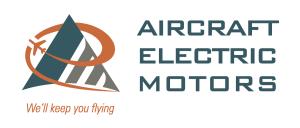 |
|
 |
 |
|
 |
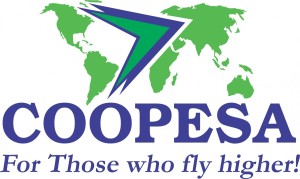 |
|
 |
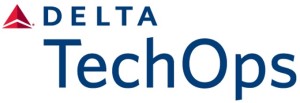 |
|
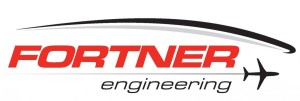 |
||
 |
 |
|
 |
 |
|
 |
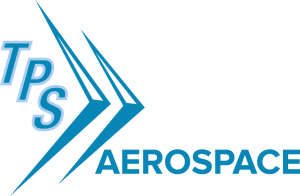 |
Community Spotlight – SLC Sponsors
By ARSA Events Team
The association is grateful to each organization that stepped up to facilitate leadership for the maintenance community. Get to know them.
Click any sponsor logo to visit the organization’s website:
Gold Sponsors |
||
|
Gold |
 |
|
 |
Gold |
Silver Sponsors |
||||
 |
 |
 |
||
 |
 |
Supporters |
||||
 |
s |
Professional Inspiration – 2016 ARSA Scholarship Winner Tony Tran
By ARSA Communications Team
In March, the Northrop Rice Foundation announced that the 2016 ARSA Scholarship had been awarded to Tony Tran of Chaffey Community College in Rancho Cucamonga, California. Tran was selected out of 37 applicants to receive the association’s annual award.
There is a satisfaction for me when I make a repair. The only way I can describe it, is by comparing it to the feeling an artist gets when he or she completes a painting. I treat every job I do like it’s my masterpiece. – Tony Tran
Photo courtesy Tony Tran.
ARSA caught up with Tran in September to ask him about his life, career and aspirations. His inspirational responses illustrate the commitment to duty of AMTs around the world:
What made you decide to pursue aviation maintenance training?
I always felt a connection to aviation since I was young. It started with my dream to become a pilot after I saw a plane for the first time. In fact, I boarded that plane when I traveled from Vietnam to the United States. In high school, I discovered my aptitude for science and math so I thought engineering was the best route for a career. I went to college, while at the same time served in the United States Marine Corps Reserves. While in the Marines, I worked as a helicopter mechanic and I simply enjoyed the work I did with these flying machines. Engineering did not give me as much joy, so I dropped out of a University Engineering program and went to [Chaffey] community college for its AMT program.
There is a satisfaction for me when I make a repair. The only way I can describe it, is by comparing it to the feeling an artist gets when he or she completes a painting. I treat every job I do like it’s my masterpiece. I take particular care in my actions, and always make sure I do every job right to the book. Yes, it is frustrating. Yes, it is hard. However, I prefer to do this than sit in any office.
What experience or experiences did you have before you started at Chaffey that have been most valuable to you during school?
Aside from my experiences in the military, I believe my experience at Cal Poly, San Luis Obispo was most valuable. There I learned the importance of time management, and picking what you love to do rather than picking something that you’re good at. Some people are fortunate enough to be good at something they love. However, for me, I did not have a love for Engineering, even though I was good at it.
During my time at Cal Poly, I learned that you can always get better at something, but you cannot learn to love something. I may not be the greatest mechanic, but I sure do enjoy fixing things.
What have you found to be most surprising/unexpected about AMT school?
I found that the education at my AMT school to be even better than that at a university. The instructors can convey and explain information just as well or even better than professors. They understand students a little better, and they can use that understanding to change up their teaching method as new generations of students come into their classrooms. Just because the degree or certificate can be perceived [by those outside the industry] as lesser than a bachelors’ degree, it doesn’t mean that the education received is any less.
Other than becoming an ARSA member, what are your goals for life after school?
After my certificate, I hope to work as a mechanic for an airline for a period of time. Furthering my education would still be on my mind. One way or another, I would work towards a bachelors’ degree in a field that has to do with aviation. Then one day, I would work towards a Masters’ degree, return to the education environment and to pass on my experience and knowledge to the next generation.
To help ARSA’s members understand the value of the scholarship, tell us about the expenses you have to cover while at school.
Asides from education tuition, student fees, and the costs of books being in an AMT program requires students to buy tools as well. In addition to tools, I would need to pay for my Airframe and Powerplant Written Exams and Oral/Practical Exams. The expenses I mentioned earlier are purely for my education, but in addition to those expenses, I have to take reduced time at work in order to go to school. That means, I would need to rely on Financial Aid, Scholarships, and Grants to pay for rent and other bills while I attend school. Those are the unforeseen expenses of going to school.
NOTE: Scholarship money is primarily for tuition and fee payment, with the student receiving any remainder funds from their school. Assistance with tuition payment frees up student funds – or limits debt burden – to cover other expenses.
If you learned that someone was considering school/career choices and they asked you about aviation maintenance, what would you say?
I would say aviation maintenance is a dynamic and growing industry. At the same time, aviation maintenance gives you a sense of duty. In my experience so far as a student and as a former helicopter mechanic, the jobs can change day to day. Furthermore, the industrial technology is growing so fast that there are new ways to perform our jobs every year.
People all over the world rely on aircraft for transportation, recreation and mission support. The uses of aircraft expand as time moves forward, and again technology feeds into the aviation industry continuously with this aspect as well. Jet liners are becoming more fuel-efficient and can carry more and more people. Flying has almost become the most practical way to travel. With more people taking to the skies, it is our duty to make sure they’re safe up there. That is our duty as aviation mechanics.
Anything else?
First of all, I would like to thank ARSA for the help they have provided for me. Most importantly, ARSA supports several students each year, and I would like to thank your organization for that as well. I mentioned earlier that this world needs aviation mechanics, and many people dream of working on aircraft. Any contribution that ARSA makes has already made a huge impact for students everywhere and the aviation industry.
I know because it certainly has made a difference for me.
Make ARSA’s Voice Your Own: Advertise
ARSA has a menu of advertising opportunities for arsa.org, the hotline and the ARSA Dispatch.
Take advantage of these great opportunities today to showcase your company, a new product or event. For more information go to arsa.org/advertise.
Exhibit, Sponsor the 2017 Repair Symposium
As the maintenance industry’s top event devoted exclusively to regulatory compliance, the ARSA Symposium attracts a highly qualified professional audience.
Use this opportunity to promote your company while showing support for ARSA. Get more information at arsa.org/news-media/events/arsa-symposium/arsa-annual-repair-symposium-sponsorship.
Q: Can a repair station, holding part 145 approvals from the FAA and EASA, issue a dual release if the repair station is located in a country not covered by the U.S.-EU Bilateral Aviation Safety Agreement?
A: No.
A dual release certificate is authorized under the above agreement. That agreement only applies to facilities that are both FAA and EASA approved and located in the United States or European Union member states (as listed in Annex 2 of the US-EU Bilateral Aviation Safety Agreement). See US-EU Bilateral Aviation Safety Agreement, Annex 2; FAA Order 8130.21H, CHG 1, para. (3)(a)(2) (Jan. 11, 2016). Therefore, an FAA-EASA approved repair station located in Mexico could not issue a dual release. See also EASA Letter to EASA Part 145 Approval Holders (Sept. 5, 2012).
AVMRO News Portal
ARSA strives to provide resources to educate the general public about the work of the association’s member organizations; should you need to provide a quick reference or introductory overview to the global MRO industry, please utilize AVMRO.ARSA.org.
AVMRO Industry Roundup
ARSA monitors media coverage on aviation maintenance to spread the word about the valuable role repair stations play globally by providing jobs and economic opportunities and in civic engagement. These are some of this month’s top stories highlighting the industry’s contributions.
You can explore these stories through ARSA’s Dispatch news portal.
Upcoming Events
MRO Latin America – Cancun, Mexico – Jan. 25-26
Previous Editions:
the hotline is the monthly publication of the Aeronautical Repair Station Association (ARSA), the not-for-profit international trade association for certificated repair stations. It is for the exclusive use of ARSA members and federal employees on the ARSA mailing list. For a membership application, please call 703.739.9543 or visit http://arsa.org/membership/join/. This material is provided for educational and informational purposes only. It does not constitute legal, consulting, tax or any other type of professional advice. Law, regulations, guidance and government policies change frequently. While ARSA updates this material, we do not guarantee its accuracy. In addition, the application of this material to a particular situation is always dependent on the facts and circumstances involved. The use of this material is therefore at your own risk. All content in the hotline, except where indicated otherwise, is the property of ARSA. This content may not be reproduced, distributed or displayed, nor may derivatives or presentations be created from it in whole or in part, in any manner without the prior written consent of ARSA. ARSA grants its members a non-exclusive license to reproduce the content of the hotline. Employees of member organizations are the only parties authorized to receive a duplicate of the hotline. ARSA reserves all remaining rights and will use any means necessary to protect its intellectual property.
© 2016 Aeronautical Repair Station Association





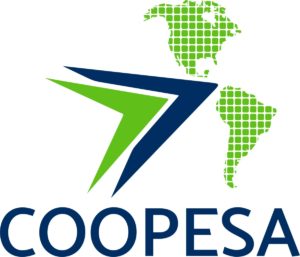


![Click here to cast you [predictive] vote.](https://arsa.org/wp-content/uploads/2016/09/votye.jpg)

